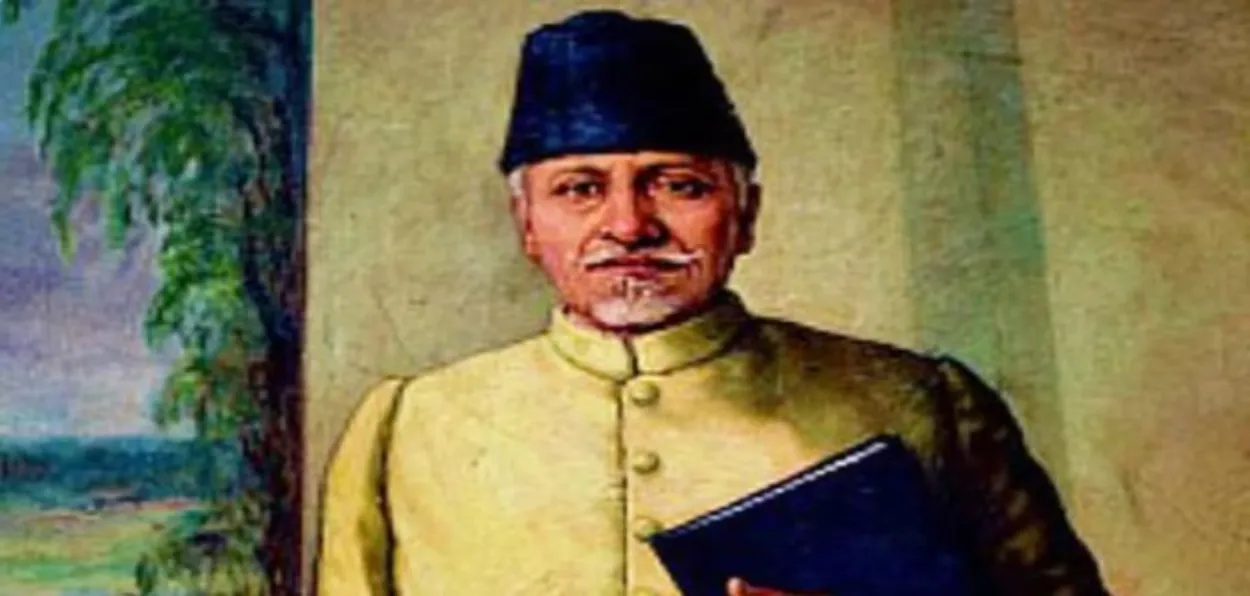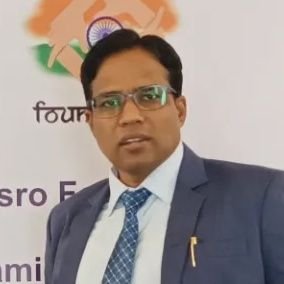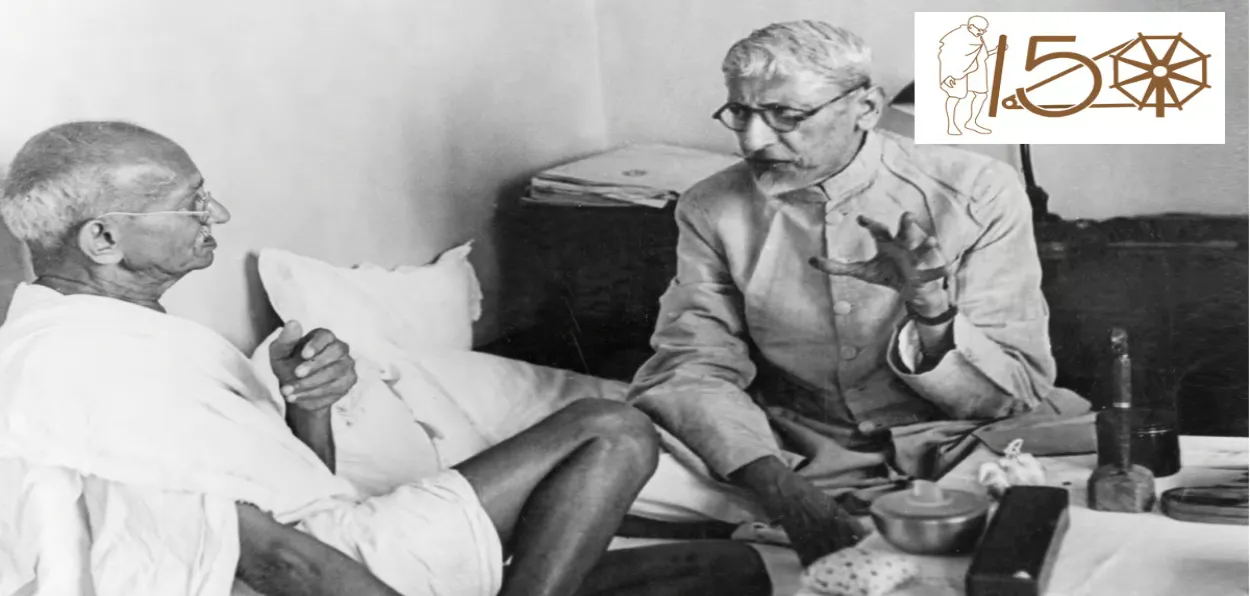
 Faiyaz Ahmad Fyzie
Faiyaz Ahmad Fyzie
As per a famous hadith - the sayings of Islam’s founder Muhammad - 'Al-Aimmatu main al-Quraysh' the leaders (supreme leadership, Imam, Amir, Caliph) should only be from the Quraish tribe (Syed, Sheikh, etc). In compliance with this, all those who held the post of Caliph before the Ottoman Caliphs of the Turkish tribe belonged to the Quraish tribe. Even today, the Quraish (Syed, Sheikh, etc.) dominate almost all Islamic institutions and centers of Sufism.
Being closest to the lineage of Prophet Muhammad, Banu Abbas (A sub-tribe of Quraish) was the stronger claimant to the Caliphate.
Once Banu Abbas succeeded in taking over the Caliphate from Banu Umayya, another Quraish sub-tribe. Even after the Turks gained dominance over the Islamic regions the Caliphate remained with Banu Abbas. However, their power was nominal as the real power was with the Turkish Sultans of the Ottoman Empire.
After some time, the Turks acquired three symbols of the Caliphate - the ring, the stick, and the Chonga (a special type of garment worn over clothes like a jacket) -, and became the Caliphate.
During the First World War, Turkey was with Germany and against Britain. In India, Ashraaf Muslims launched the Khilafat Movement in favour of Turkey. To everyone’s surprise, Mahatma Gandhiji openly supported the Khilafat movement. This was perhaps the first clear and open appeasement of Ashraf Muslims.
Maulana Abul Kalam Azad, an Ashraaf and a Congress leader, openly supported the Khilafat Movement. Though Congress was a divided House on this issue, Azad quoted Gandhi to voice his support.
Since Turkey was the center of Islamic power and Khilafat (the highest Islamic position) at that time, Muslims all over the world supported it. To dent Turkey's status, the British questioned the legal validity of their Khilafat by citing the above-mentioned Hadith and by asserting that Turks had no right to lead the Muslims, as they were neither Arabs nor Quraish.
This harmed the Khilafat movement in India, which was being led by Ashraaf. Through this movement, they wanted to take a lead over the British and Hindus. Maulana Azad, speaking for the Khilafat movement, wrote a 225-page book 'Masla-e-Khilafat'.
 Mahatama Gandhi with Maulana Azad
Mahatama Gandhi with Maulana Azad
In the book, he investigated the said Hadith to verify the Islamic legal validity of the Turkish Khilafat and tried to prove with the help of quotes from various Hadiths and books by Islamic Ulema (scholars) that if people of non-Quraish tribes are capable, they can also lead the Muslims.
However, it is worth mentioning that Maulana Azad did not call the said hadith wrong, rather he considered it to be the correct and true statement of Muhammad. He said that it was a prophecy that in the coming times only the people of the Quraish tribe (Syed, Sheikh) would be the Caliph. Even today there is a difference of opinion among the Ashraaf Ulema on this, some believe that this is the order of Muhammad and some say that it was the prophecy of Muhammad.
A person's intentions are revealed by his actions. Maulana Azad’s stand on that hadith was limited to his effort to strengthen the Khilafat movement. Azad never raised the issue of Islamic equality and karma primacy before or after this, nor is there any evidence of him trying to implement it. Based on the above-mentioned Hadith, the Ashraaf continued to dominate the leadership in all Muslim organizations and kept caste alive in Muslim society.
In the initial days of Jamiatul Momineen (Momin Conference - First Pasmanda Movement), and on the invitation of Asim Bihari, Maulana Azad gave a speech. He attended the conference with Gandhiji. His support for the Pasmanda Movement remained limited to his speech only.
During the Constituent Draft Assembly, when Ambedkar proposed the formation of a sub-committee under the leadership of Sardar Patel for a quick and logical solution to the problems of the Advisory Committee based on fundamental rights, minorities, tribes, and excluded areas, it was accepted.
Ambedkar says in his speech that when the Constitution was being made, I met Maulana Azad, who is nothing but a puppet in the hands of the Congress. Just a day before the meeting scheduled to discuss the political future of the minorities, I gave him a brief description of all the issues and possibilities related to the Muslims.
“This Maulana did not attend the meeting. As a result, none except me could strongly defend the rights of Muslims. Since I was the only one in support of the reservation of constituencies for Muslims. Pandit Nehru opposed it on behalf of the Congress. As a result, my Muslim brothers, you were deprived of the powerful political right of reservation of constituencies.”
Feroz Bakht Ahmed, former Chancellor of Maulana Azad National Urdu University and grandson (nephew's son) of Maulana Azad, in his article “Muslimon ke majeed pasmanda hone ka anadesha” (Fear of Muslims becoming more backward) published in Dastavej, Rashtriya Sahara Urdu on 26 June 2005, writes-
“When Sardar Vallabhbhai Patel, as Chairman of the Minority Protection Committee, put the issue of reservation under debate for the Draft Constitutional Committee, out of the 7 members of the committee, 5 voted against it. These members were - Maulana Abul Kalam Azad, Maulana Hifzur Rahman, Begum Ejaz Rasul, Hussainbhai Lalji, and Tajammul Hussain.”
Constituent Assembly in Session
It should be noted that till that time, according to the Government of India Act of 1935, the Pasmanda castes were getting the benefit of reservation, thus by voting against the Pasmanda reservation, Maulana Azad demonstrated his Ashraaf character.
Also, during the debate on the subject of the adult franchise (right to vote for all adult citizens) in the Constituent Assembly, Maulana Abul Kalam Azad advocated postponing the adult franchise for 15 years. However, Dr. Rajendra Prasad and Nehru strongly supported its adoption. Denial of adult franchise is in a way contrary to democratic values.
After the 1946 elections, when the Bihar Council of Ministers was being formed, Maulana Azad strongly opposed the appointment of Abdul Qayyum Ansari, the fearless leader of the Pasmanda movement, as a minister and denied him the post.
Sardar Patel emerged as a well-wisher of the Pasmanda and despite strong opposition from Maulana Azad, he intervened in support of the non-Congress (it should be noted that the first Pasmanda movement of that time, Jamiatul Momineen, had won respectable seats by going against the Muslim League) Pasmanda leaders and got Abdul Qayyum and Noor Muhammad honoured with the post of minister.
Maulana Azad's policy of opposing the partition of the country was also only to protect the interests of Ashraaf Muslims. Ashraaf Muslims were not leaving India, they were dividing India. To ensure that Ashraaf interests are protected in India, Ashraaf stood against partition. For them if partition happens, it was fine and if it doesn't happen, one group of Ashraaf would emerge as a leader. Maulana Azad's policy was to ensure s secure future for the Ashraaf who stayed back in India.
That is why in his speech at Jama Masjid, he appealed to the Ashrafs in the name of Ashraaf symbols. He asked them, "Where are you going leaving behind Red Fort, Taj Mahal, and the graves of the elders? As against this Asim Bihari's anti-partition speech was focused on invoking the love for the motherland and the indigenous symbols, and sais there is no need for Muslims to be afraid of staying back. Ironically, while Maulana Azad's speech is discussed, Asim Bihari's speech is not.
ALSO READ: Indira Gandhi was great but she ignored Pasmanda Muslims
Unfortunately, the country was divided; Muslim Leaguers became patriots overnight by wearing Gandhi caps. Another group of Ashraafs under the leadership of Maulana Azad emerged as heroes and indirect rulers. The reality is that Pasmanda leaders and organizations had stood firmly against the partition under the leadership of Maulana Asim Bihari and his organization Jamiatul Momineen (Momin Conference).
(The Author is a Translator, Columnist, Media Panelist, Socio-Pasmanda Activist, and Medical Doctor by profession. These are his views)
